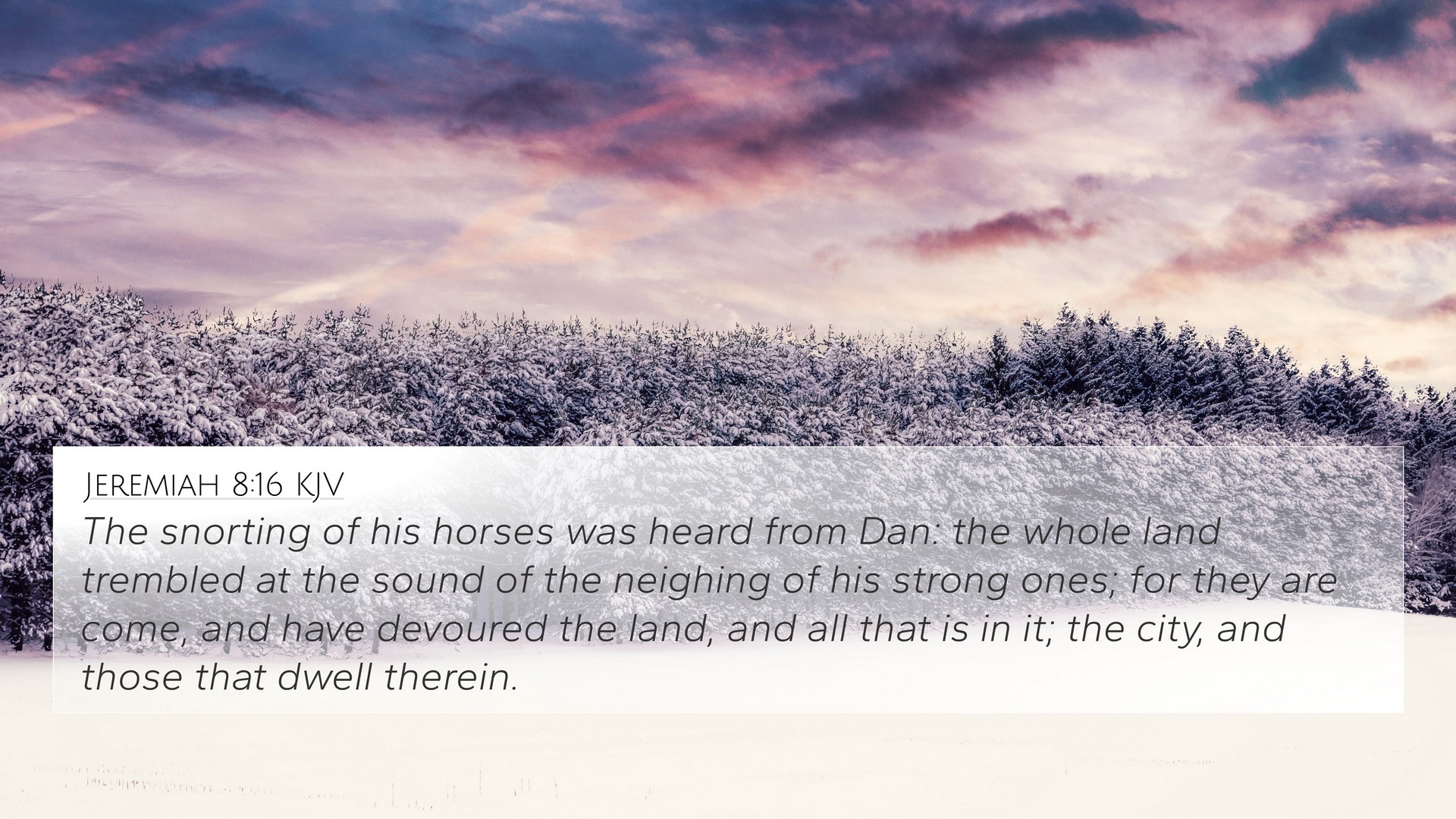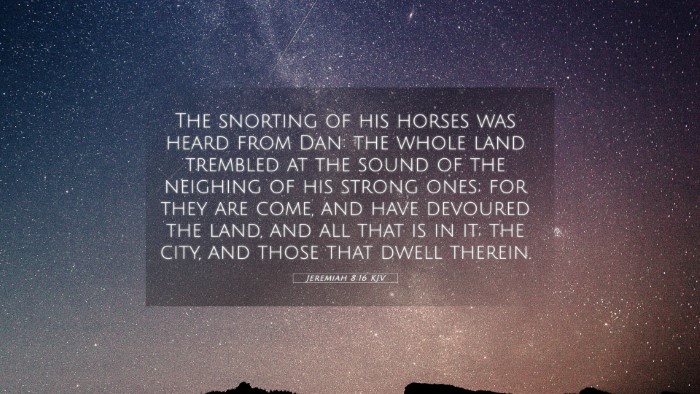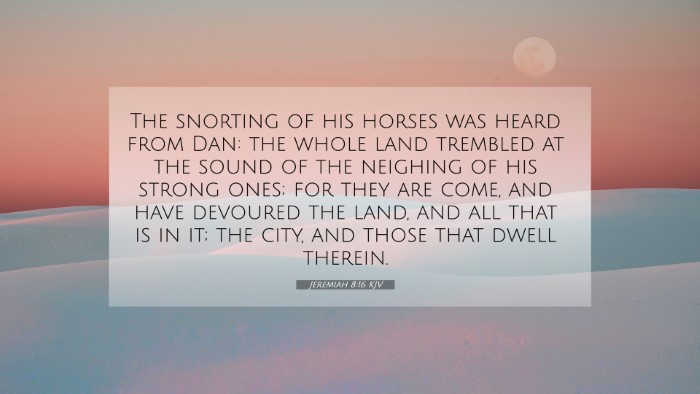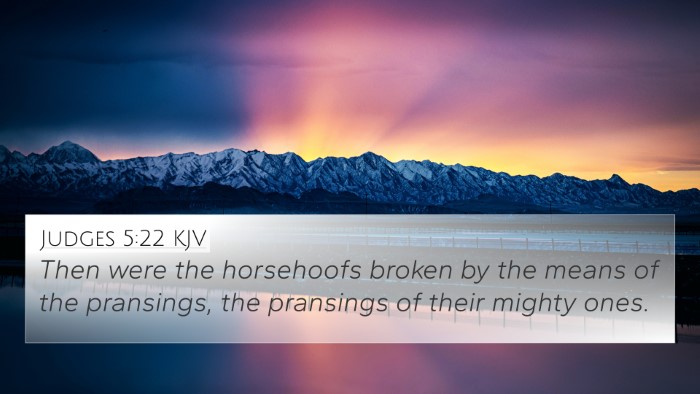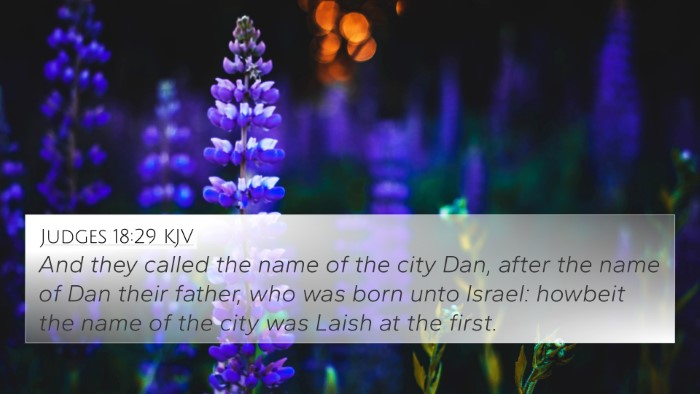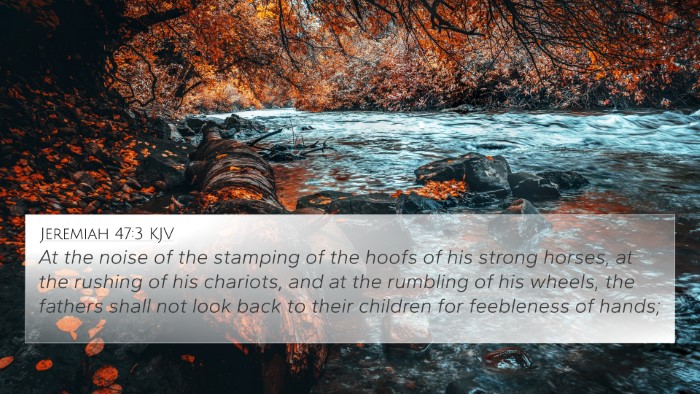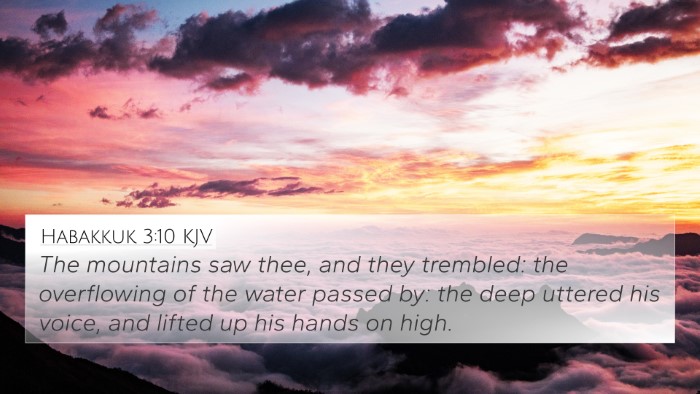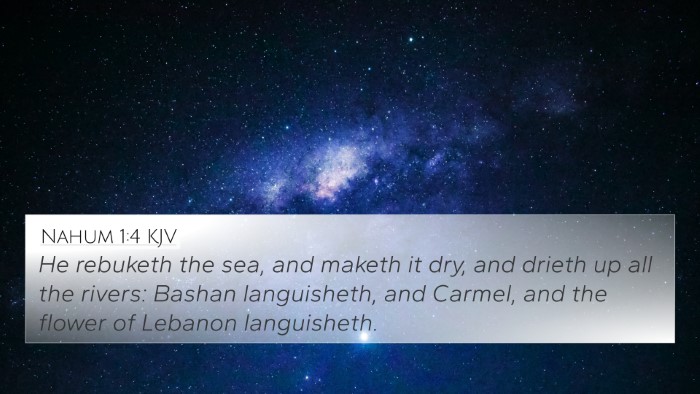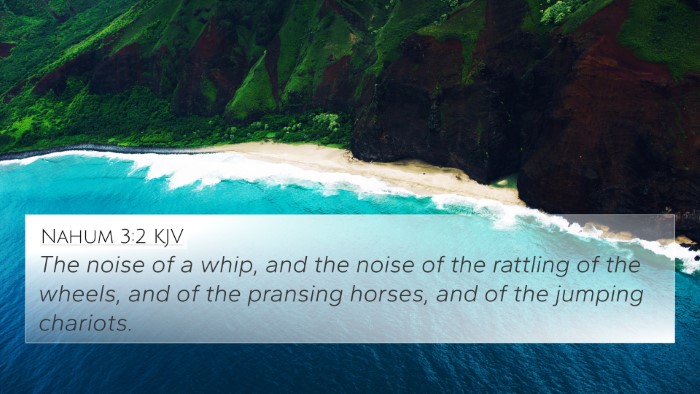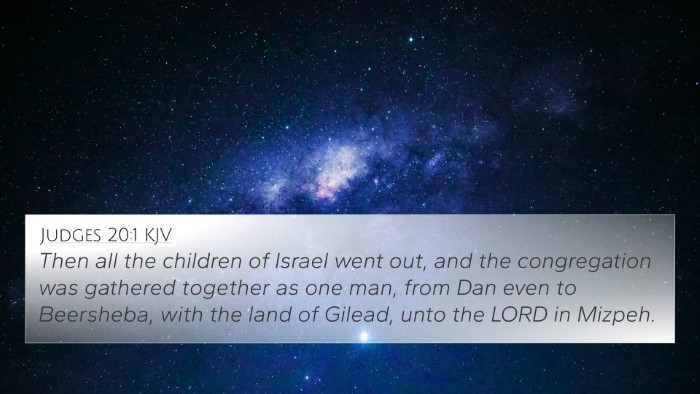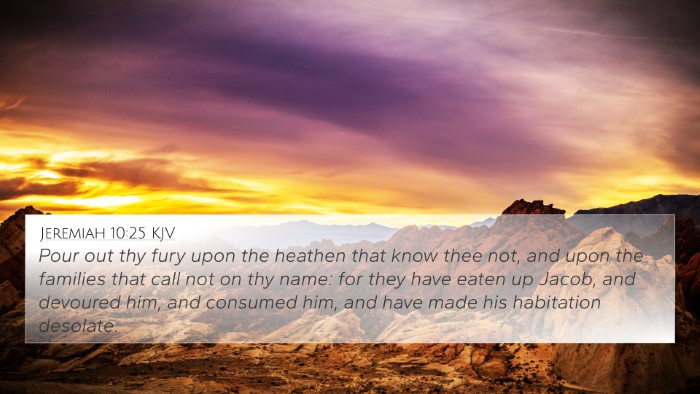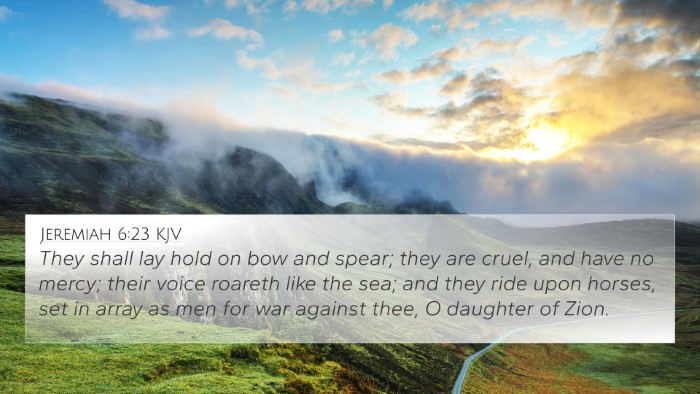Understanding Jeremiah 8:16
Jeremiah 8:16 states: "The snorting of his horses is heard from Dan; at the sound of the neighing of his strong steeds, the whole land trembles; they come and devour the land and all that fills it, the city and those who dwell in it."
This verse illustrates a vivid picture of impending invasion and destruction, using the metaphor of horses to symbolize the strength and ferocity of the enemy forces approaching Judah.
Verse Meaning and Analysis
The prophet Jeremiah is expressing a warning to Jerusalem concerning the powerful forces that will come against them, illustrating their approach with powerful imagery. The sound and impact of the horses signify overwhelming power, causing fear and trembling throughout the land.
Below are combined insights from notable public domain commentaries.
Commentary Insights
-
Matthew Henry:
Henry emphasizes the alarm that such an invasion would bring to the people of Judah. The reference to Dan highlights that the warning reaches from the northernmost part of the land, indicating the thoroughness of the impending calamity. The imagery of horses and their destructive capability also underscores the seriousness of disregarding warning signs.
-
Albert Barnes:
Barnes highlights the psychological impact of the enemy's approach. He notes that the sound of the neighing horses and the tremor it induces in the land signifies the inevitability of destruction for those who have turned away from God. The horses are representative of the military might that is to come, reflecting God’s judgment on His people.
-
Adam Clarke:
Clarke elaborates that the mention of the horses from Dan signifies a military force marching from the north, which was a common route for invaders. He points out that the imagery employed by Jeremiah serves as both a warning and a reminder of the consequences of being unfaithful to God, showcasing the inevitability of divine retribution.
Cross-References and Thematic Connections
Jeremiah 8:16 connects with several other Bible verses that echo similar themes of invasion, divine judgment, and the consequences of sin. Here are a few pertinent cross-references:
- Isaiah 5:26-30: This passage describes the call of a distant nation against Israel, similarly illustrating the devastating power of invading forces.
- Jeremiah 4:13: This verse speaks of the judgment of God as an army comes, reflecting the imagery seen in Jeremiah 8:16.
- Lamentations 2:7: Here, the destruction of the temple signifies the consequences of Israel's unfaithfulness, connecting to the broader themes of loss and devastation.
- Ezekiel 14:21: The severity of God's judgment is reiterated in this verse, aligning with the themes presented in Jeremiah.
- Amos 4:10: The idea of pestilence and calamity as a form of divine judgment joins with the themes of destruction found in Jeremiah.
- Habakkuk 1:6: This verse speaks to the Lord’s raising up of the Chaldeans to fulfill judgment, paralleling the imagery of approaching invaders in Jeremiah.
- Revelation 9:16: Reflecting on the army imagery, Revelation speaks to the vastness and impact of divine judgment in the end times, similar in severe tone.
Conclusion
In summary, Jeremiah 8:16 serves as a critical reminder of the consequences of turning away from God. The vivid imagery of invading forces underscores the urgency of heeding God's warnings and repenting from sin. By exploring thematic connections and employing tools for Bible cross-referencing, one can gain deeper insights into the relational dynamics of Scripture.
Understanding how Jeremiah communicates God's intentions through this verse allows believers to reflect on the importance of faithfulness and obedience. As we explore the linked verses and themes, we see a rich tapestry of God's narrative calling His people back to Him.
